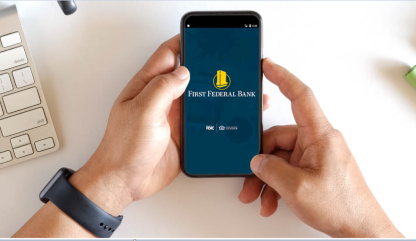Mobile Payment Scams to Avoid
Apps that allow you to conduct transactions directly from your mobile phone have been quickly growing in popularity. Unfortunately, scammers try to...
Manage your everyday finances with convenient accounts, flexible cards, and personalized service designed to fit your life.
At First Federal Bank, we offer flexible mortgage solutions for almost any situation, helping you secure the right financing for your dream home.
Business banking offers secure financial management, streamlined transactions, credit options, and tools to help businesses grow efficiently and sustainably.
2 min read
First Federal Bank : August 10, 2022 10:00:00 AM EDT

 If you find yourself in need of a vehicle — but can’t secure an auto loan with favorable terms — you may be tempted to take out a home equity loan to fund your purchase. Like every financial decision, this choice can come with drawbacks that need to be considered. Here’s a look at what you need to know before you borrow against the value of your home:
If you find yourself in need of a vehicle — but can’t secure an auto loan with favorable terms — you may be tempted to take out a home equity loan to fund your purchase. Like every financial decision, this choice can come with drawbacks that need to be considered. Here’s a look at what you need to know before you borrow against the value of your home:
Potential benefits
When you use a home equity line of credit to pay for a car, you take on a substantial amount of risk. However, you may also enjoy a few benefits. First, compared to a conventional car loan, a home equity loan has a longer repayment period. That means you’ll be able to make payments that are lower and spread over a longer period of time. This can alleviate cash flow problems, explains Certified Personal Finance Counselor Casey Bond. Furthermore, Bond explains you may have more negotiating power when you’re purchasing your vehicle at a dealership, which can translate to a lower price tag.
Understand the risks
A home equity loan comes with substantial risks, warns credit and debt expert Steve Bucci. Since your home serves as collateral on the loan, if you fail to make payments, your house could wind up in foreclosure. This is further complicated by the fact vehicles depreciate rapidly within their first three years on the road. Therefore, if you find yourself coming up short on money for your home equity loan payment and need to sell your car, you’ll only be able to sell your vehicle for significantly less than you paid for it. And while a home equity loan’s long repayment period can seem like a benefit, it can have some unfortunate consequences. Some home equity lines of credit can have repayment terms as long as thirty years. Therefore, depending on the term of the loan, you could end up making payments on a vehicle long after it’s been relegated to the junkyard.
Do your research on interest rates
Whether you purchase your vehicle with an auto loan or a home equity loan, the interest rate will vary depending on your credit score, lender, and other financial circumstances. In some cases, Bond explains a home equity loan can be appealing since they often offer better interest rates than other means of financing a vehicle, such as a traditional car loan or charging the down payment on your credit card. However, this isn’t universally true — and if you’re primarily chasing a better interest rate on your loan, you may want to consider simply improving your credit score instead of borrowing against your home. That’s because your home equity loan could appear to have a lower interest rate than a car loan, but unforeseen expenses that accompany a home equity line of credit could diminish those savings. These expenses include high closing costs, appraisal costs, document preparation fees, and other hidden costs. Therefore, it’s always important to review the fine print before signing on the dotted line.
For more guidance on affording your next vehicle, consider consulting with a financial planner.

Apps that allow you to conduct transactions directly from your mobile phone have been quickly growing in popularity. Unfortunately, scammers try to...

When it comes to personal bank accounts, you probably think of basic checking and savings options. But there are different kinds of accounts you...

Finding time to visit your financial institution during business hours to deposit a paper check isn’t always easy. Fortunately, you might have access...
Manage your accounts, make payments, and more.
Open an account with us.